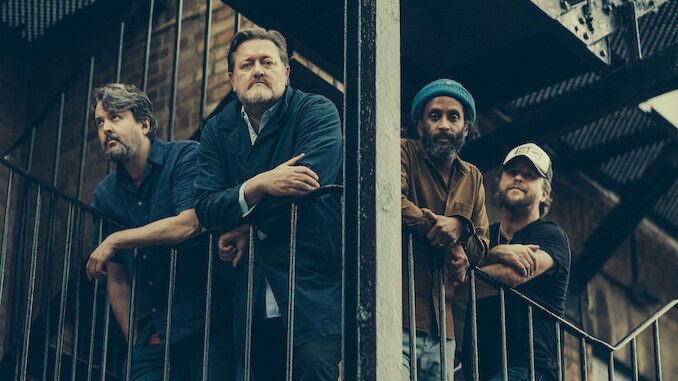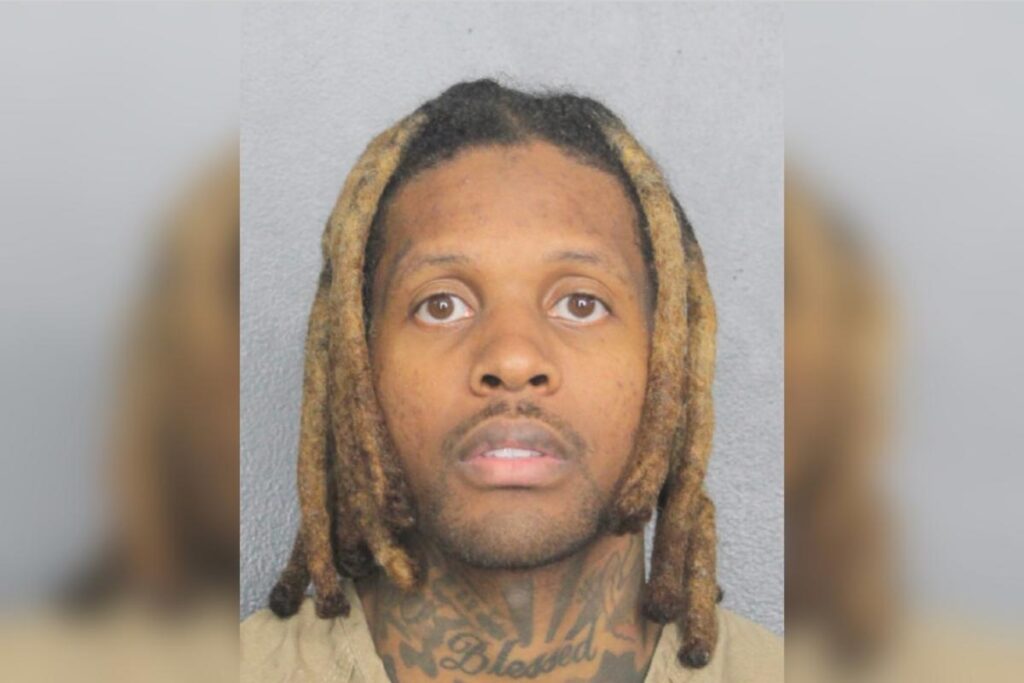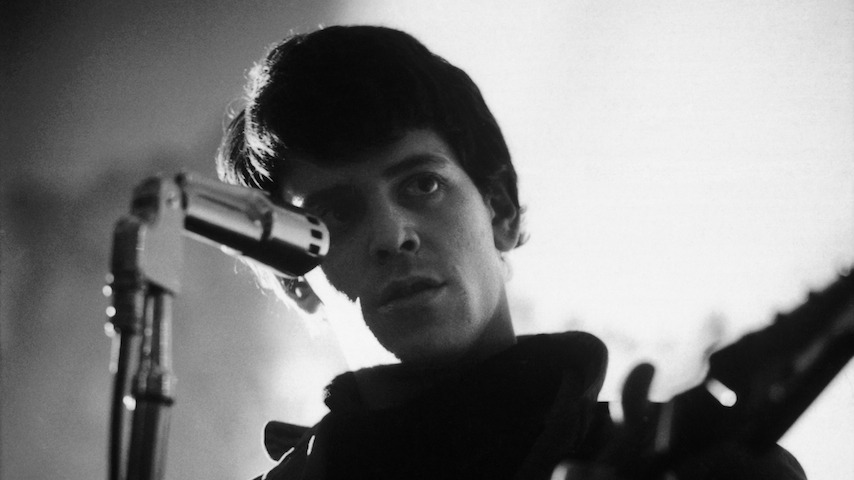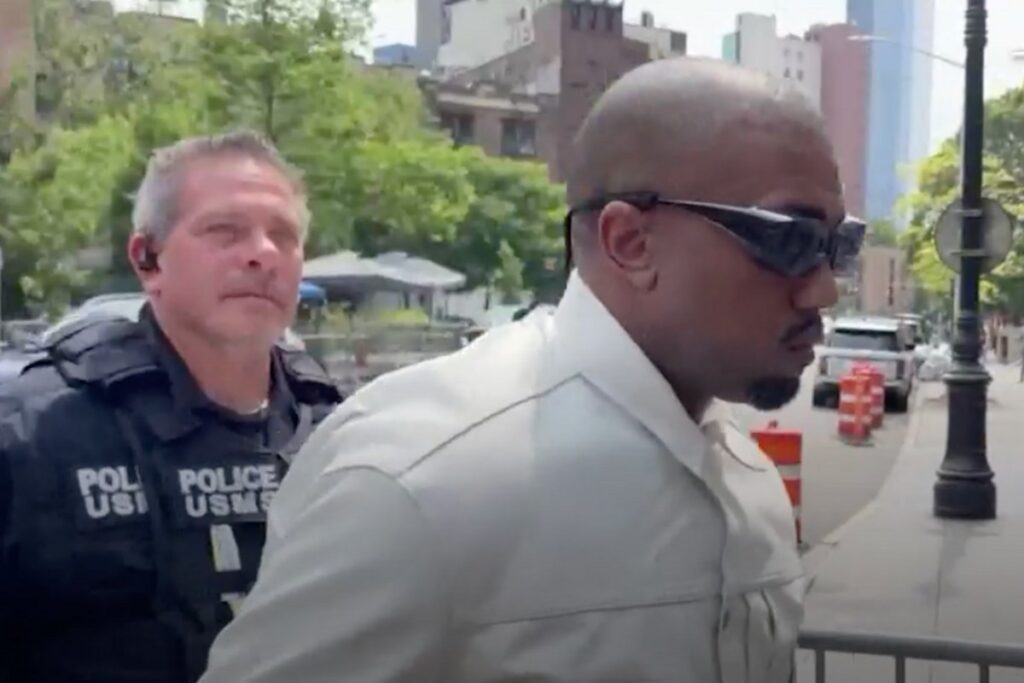Some artists aggressively map out the perfect path to stardom, but not unassuming, soft-spoken and sleepy-eyed Mancunian Guy Garvey. Ever since he formed his BRIT- and Mercury Prize—winning outfit Elbow back in 1997, the prog-pneumatic vocalist has stumbled serendipitously into success, with a list of remarkable achievements that just keeps growing, exponentially, leading to his group’s inventive, Chet Baker-relaxed new album Flying Dream 1, recorded live in the echoey Theatre Royal Brighton. That’s how he’s gotten score-composing assignments in the film world, acting roles and his own weekend radio show on BBC 6, Guy Garvey’s Finest Hour, which he generously expanded during Covid lockdown to include a bonus hour of artists he equates with restorative chicken soup—Van Morrison, Aretha Franklin, Nina Simone and similar classic soul-steeped artists. “It’s still going strong on Sunday afternoons,” he’s happy to report. “People stir their gravy to it!” Good fortune just seems to follow him.
Garvey, 47, wasn’t looking for love when he attended film star Benedict Cumberbatch’s wedding a few years ago, but it found him there via a fellow guest, actor Rachael Stirling, daughter of late screen legend Diana Rigg, who had grown fascinated with Garvey’s erudite lyrics on Elbow’s The Take Off and Landing of Everything album. Now the intellectual, arts-loving couple have been happily married for five years, with an inquisitive young son, Jack. During lockdown, new Elbow songs started occurring to him, thoughtful, gently restrained entries like the acoustic-plucked “Come On Blue,” a surreal jazzy experiment called “Is It a Bird,” a lounge-plush “After the Eclipse” and the piano-underpinned whimsical title track. With minimal backing from longtime members Pete Turner on bass, and brothers Craig and Mark Potter on keyboards and guitars, respectively, Garvey dials down his gale-force style to a gentle breeze, allowing him to really inhabit colorful lyrics like “the roses are heavy with rain” and “Low bright February shadows … I can hear a school.” And the “Seldom Seen Kid” cut addresses the same late musician friend from the group’s past, Bryan Glancy, who inspired their 2008 album of the same name.
The rocker and his wife have even watched their career paths cross recently. As Garvey recalls, he was just hanging out in Vancouver, minding Jack, while Stirling was shooting the code-breaker espionage drama The Bletchley Circle: San Francisco when the producer spontaneously offered him a perfectly suited cameo. “He said, ‘We have a jazz band in this next scene—do you wanna do it?’” he says. He agreed, but only if he could croon the old standard “I Only Have Eyes For You.” “So that’s just what I did, and I also acted in a British comedy series called Car Share—it’s very, very funny, and the comedian that made it, Peter Kay, is a national treasure over here, and he’s an old friend of mine.” He had a recurring role in every episode, he adds, that tested his acting chops to the limit: “I play one of the lead character’s brother-in-law, who’s always fixing his motorcycle on the path. And I don’t know fuck-all about motorcycles, so it was quite a stretch for me.” He checked in with Paste, knocking wood that his charmed life stays magical.
Paste: The key to understanding this record lies in lyrics like, “The Universe keeps singing its song / I can’t get it out of my head” and “I never was so sure that I was right where I should be in my whole life.” Especially during the pandemic, the universe does give you everyday signs that things are okay, even if it’s just a simple digital clock sequence, like “1234” or your birthday.
Guy Garvey: It happens all the time, man. So my mother-in-law, as you know, was Diana Rigg, and she died during the making of this record, and we were close to her for the last six months of her life. And we had a memorial for her just the other day at a church in Covent Garden called St. Paul’s, also known as the Actor’s Church, and it’s covered in plaques of beloved old actors. So Rachael put a plaque up for her mum, and we had a little, quiet ceremony with about 10 of us. And on the way home in the taxi, the song from the end of the Bond movie that she was in with George Lazenby—she was the Mrs. Bond that was shot on their honeymoon—and the Louis Armstrong song, “We Have All the Time In the World”—that came on in the taxi on the way back home. It was crazy. And it turns out it’s in the new Bond film, and there are quite a few nods to Diana Rigg in the new Bond film, as well, which was enormously flattering for Rachael. But yes, these things line up, they just line up, the universe and its signs. I completely agree with you, man.
Paste: There are anomalies, too, of course. “Come On, Blue” sounds like you’re calling your old hunting dog.
Garvey: Ha! No, that’s my son! It’s actually my son. And should my son ever be down in the mouth, I want him to listen to that song—that’s what that’s for.
Paste: Some of the songs sound like you’re addressing Junior directly, like “What Am I Without You,” and its line “What am I on the Earth for if not to put you to bed?”
Garvey: Yeah. There’s a couple. So it could be construed like that, but in actual fact that was written to Rachael when she was in the throes of looking after her mum. All I could do was wander around after her, ready to catch, you know? And I had to remind her to eat, and I had to put her to bed. But yeah, I deliberately sort of made it so it sounded like I was talking to Junior a little bit. And it’s funny, that, isn’t it? A lot of the time when you’re listening to Bjork’s lyrics, particularly on the album Vespertine,you’re unsure if she’s singing about a romantic interest or if she’s singing about her child, and I like that blurring, different kinds of love blurring into similar sentiments. And there are points on the record, you know, where I use phrases that are definitely to do with Diana and to do with her situation, and then sometimes I’m singing to my mother on this record. It’s very much about nostalgia, very much about location, and the really bewildering feeling of this whole episode of Earth’s history. And I’d say bewilderment has been the overriding factor.
Paste: The cover photo is backyard-nostalgic, with two kids boxing, maybe in preparation for the beatdowns life will be handing out.
Garvey: Those little kids, I’m delighted to tell you, are Mark and Craig from the band—that’s a picture of them as kids, and the houses in the background in that picture are exactly the houses we all grew up in. And weirdly, when you get the vinyl sleeve, and when you open it up, there’s a picture from a very rare hot day in the ’70s, when a brand new cinema had opened in Bury, and all the cars in the car parks are Minis and Ford Escorts, and they’re all high-chromed and buffed to a shine. And in fact, it’s possibly the ’60s, maybe not the ’70s, but it’s a Kodacolor picture, and actually, it looks like Americana. It looks like New Mexican Americana, and it’s got that sizzling heat to it. It doesn’t look like the damp old mill-town Bury, where we came from. And in the same way, that front-cover image, that sort of young pugilist thing, I don’t know—it’s got aspirations for something that it isn’t. And actually, when you pull the dust sleeve out on the vinyl, as well, there’s a surprise for anybody from Bury. It’s a very focused, local record, with lots of geographical references to the North, I think because I was nostalgic for the place, and also because I’m looking at the world through Jack’s eyes—I’m looking at the world through the eyes of a three- and four-year-old on this record.
Paste: But you know that—as Thomas Mann once told us—you can never go home again.
Garvey: I’ve heard that one. But I’ve also heard it said that we will never cease in our wanderings until we return home and know the place for the first time. I can’t remember who said it, though.
Paste: For a while, it looked like humanity might have learned something through this pandemic. But—judging by how swiftly it’s racing toward extinction in Texas alone—it looks like we’ve learned absolutely nothing.
Garvey: Yeah. It’s absolutely fucked, man, and it will not stand. But it’s always darkest before the dawn, and it’s thrashing around now. Facebook’s taken a pounding in the British media today, a real pounding. It’s the whistleblower talking about how they disregard people’s safety at Facebook in favor of profits, and on the same day they’ve announced record profits. And you can tell they’re fucked, because the woman they’ve sent in to defend them is just coming across like an old war hawk. She’s just got lawyered-up-speak coming out of her mouth, so the friendly face of Facebook is gone now. So I think this stuff is about to get regulated, and then we’ve got a whole load of regulations to the point of censorship to argue about, so somewhere along the line maybe, communication will become a right for everybody on Earth. And then that can only be a good thing, right?
Paste: You’ve been reminiscing on such specific childhood things as the color of your old school uniform lately. But what kind of kid were you? What lunch table did you sit at in school?
Garvey: I was a bit of a clown for the girls. I wasn’t the sports kid, I wasn’t anywhere near being the sports kid. I kind of got on with most people by the end of school, but at the beginning, I really didn’t get it, you know? I had a home with five sisters and a wonderful mother, and I wanted to be there. That was what I wanted—I was a big housecat. I don’t need much. Simple comforts and I’m very happy—same with most of my family, actually. So when I was forced to go to this noisy place, fraught with danger, it took me a while to get on with it. So I suppose somewhere between 12 and 15 I found my confidence, I found my feet. But as a very little kid, I just wanted to be at home with my mum. And I was also incredibly disorganized from a tiny, tiny kid, so I had all my books for the week in a school bag for fear of forgetting any of them. So I was lugging around this huge sack of books, every day of the week, and I had a good couple of miles to walk between school and home. So I was the “weary kid” that I was describing in that song. I always see kids coming home from school now, and I think, “You poor bastards! I remember exactly how tiring and awful that was!” But it was all solved by some home cooking or whatever. But yeah, I hated school. And my life started the minute I walked out.
Paste: Did you keep journals back then? Because it sounds like you researched yourself during the pandemic, went back and read some old diaries.
Garvey: Well, straight after school, my journals start, and the earliest journal I have I think is from the summer after high school. So when I was 15 or 16, and I’ve got them from then onwards. I didn’t re-read them for the record, but they’re on hand all the time, and it is really good fun to just pick one from off the shelf now and again and have a flip through it. There’ always a heightened emotion after doing that—it’s either a big laugh or feeling sorry for that person I was back then.
Paste: What’s the weirdest thing you stumbled across from back then?
Garvey: Oh, all the sex poetry! Before I got anywhere near a woman, I wrote all these poems that I think I thought were sexy, when actually they were just … grubby, you know? It’s around the time when you discover Jim Morrison and perhaps act drunk when you’re not. And that kind of thing. I was a pretty sleazy kid, from about 16 to 20, I would say. I mean, I’m actually blushing just talking about it. I think I might have even owned leather pants! But it was just terrible, terrible poetry. And Morrison’s poetry is shite, isn’t it?
Paste: I have never liked The Doors.
Garvey: Ha! Yeah, I know what you’re saying! But I have to say, I do like a protracted musical jam, so I liked ’em for that reason. But yeah, Morrison’s lyrics are just shot. I thought I was the only one who hated them!
Paste: Speaking of long, drawn-out jams, what’s “Is It a Bird” about? It’s not Superman—instead, it’s a “jettisoned beautiful warrior’s soul”? Explain.
Garvey: Well, I’ll tell you what it wasn’t—it wasn’t a fucking plane! Because when I wrote it, there were no planes! It was two days after Diana died, and the wonderful thing about watching what happened between my wife and my mother-in-law was, they’re both actors, they’re both very opinionated, and they loved each other entirely. But through Rachael’s constant care of her mum in the last months, and between her mum’s sparing Rachael, and shielding her from the worst aspects of what she was going through, it was a massive uplifting experience, as well as being incredibly sad. So to watch Rachael deliver a happy end to her mother’s extraordinary life, and for her mum to say she’d never felt more loved, Rachael and her were thinking with one mind by the end. And I got back into the studio a couple of days after she died. I went down to my writing room and I put a beatbox on top of the organ and that jaunty beat came out, and the first that came out of my mouth is what you’re hearing. And I never bothered re-singing it. And I didn’t know what I was singing, but I was so proud of having got the job done, and had done it in a way that seemed to be right, and I was so proud of Rachael. But then I was also very, very sad to have lost my new friend. And what you hear there is a gleeful, battered lament. And you can only feel one thing at a time, and at that time I was over the moon that the pain was over for Diana, and I was over the moon it was over for Rachael, and that she’d done the best job and nobody could ever take that las part of their relationship away from her. But then at the same time, I was totally sad about losing this incredible woman. And I guess the warrior thing is because she’d been doing battle. And until the saxophone was put on there in the theatre where we recorded the album? It took me until I heard the saxophone on there to finally make sense of what I’d done. I mean, I knew it was good, but the lads took some convincing.
Paste: Going back to what we were first talking about, has Rachael been contacted by her spirit yet? It comes in dreams, usually. And have you ever experienced anything otherworldly like that?
Garvey: Well, I had a dream probably a year ago now, I had a dream that Bryan Glancy, the Seldom Seen Kid himself, that we went down to the Roadhouse in Manchester with a bunch of guys, the usual suspects, and I dreamt that we had a delightful, but uneventful night in the Roadhouse. And this was a good 10 years after Bryan died. And I woke up the next morning with a sense of Bryan so vivid, it really didn’t matter whether it had come from beyond. Whether it was a visit from another realm, or whether it had come from inside of me, it didn’t matter, because it freshened his essence, in my mind and in my heart.
Paste: So that’s why put the new song together?
Garvey: Yeah, that was one of the reasons I did. I had that beautiful piece of music that Craig put together, that woodwind arrangement, just note by note, as it dips in and out of dissonance? It’s hopeful, and then sad, and then hopeful afresh. It was exactly what the day to day machinations felt like of being locked up and in fear of an air-borne mystery. And then there was the holiness of it, and the quiet safety in it. And I would just listen to it all day, and then suddenly it hit me—what if Bryan Glancy had met my wife? And how amazingly they’d get on, how explosively charming they’d be with one another. And in fact, I think if he had met her first, I doubt very much that she would be my wife! It’s that age-old thing of watching your best friend dance with the woman you love. And I’m sad that never happened, but actually, now it has, but in my head.
Paste: If you already had the instincts of a housecat, did you struggle restlessly against lockdown or just fall smoothly in line with it?
Garvey: I had to adjust. Because as much as I like my own company, I also like walking through the world and observing it. And my walk to my writing room in Brixton, where I’m now living in South London, is a three-and-a-half-mile, very varied walk through some beautiful old parks and some very tasty urban areas. And I missed that. I really missed that. And it’s funny—the tube comes up in Brixton, and it’s the end of the tube line, and everything south of Brixton is served by that one station. And you wouldn’t believe it until you see it, but I think you can get 1,500 people in a packed tube train. So 3,000 people a minute come through Brixton station between 9 a.m. and midday, and that’s fucking crazy, because then they all come back again at the end of the day. And Brixton gets a reputation because so many people go through there every day and empty out onto that one road, but I absolutely love the place, and I love getting to know all the characters ’round there. And the people that I see there every day are vulnerable—a lot of them are homeless or people that have mental health issues. And they’re often just people I nod to, that’s all, or say, “See you at the coffee shop later.” So I’ve suddenly been very worried for those guys, you know? And even the odd aggressive panhandler that does my fucking head in on a daily basis? Suddenly, I was thinking, “Hey, where’s that guy? Where is he? Jesus!”
Paste: The album is more conscious of nature, as well, it seems.
Garvey: Yeah. Totally. Where I am at the top of a hill, there’s just clear skies and bird song, and the light pollution disappears, so you can see the stars at night. And in many ways it was quite beautiful to watch everything stop.
Paste: If you pay close attention to your activities online, you also composed music for three different U.K. TV series, Life, Trying, and Giving Up.
Garvey: It’s just basically that me and [I Am Kloot’s] Peter Jobson found a new way to work together, found another excuse to be in each other’s company. He’s 50 next week, and he’s about to release his first solo album. And for our compositions, they send you the images, tell you the premise, and you sit in a room and say, “Well, what about something like this?” And they go, “No, no, no!” And you think, “Alright. This isn’t gonna be easy.” And I particularly enjoyed Life, because the guy that wrote it, Mike Bartlett, he’s one of our greatest living playwrights, and he was loads of fun. Plus, my wife was in it, so I actually got to write a theme for my wife!
Paste: Well, I’m sorry for your loss with the passing of the great Diana Rigg. People might have forgotten how awesome she was as Emma Peel in The Avengers.
Garvey: She was just great, and we were good friends, and we spent an awful long time looking after one another. But here’s another lovely little story just before I go. One morning I was leaving for the studio, and Diana said, “Come in here, darling!” And I went in and said, “What?” And she mimed with her hands putting a cloak on me, and she said [he suddenly shifts to classic Elizabethan dialogue technique], “Here is your shroud of inspiration! Impenetrable to anything apart from the forces of good in the universe! Take this cloak, take it!” It was really over the top, and I said, “Thanks, Diana!” And the next morning, I said, “Uh, Diana, can you do the thing with the cloak again? It really helped yesterday!” And she just said, “Cloaky, cloaky, darling!” Just like that. So now that’s what my wife says to me every time I go into the studio—“Cloaky, cloaky, darling!”




